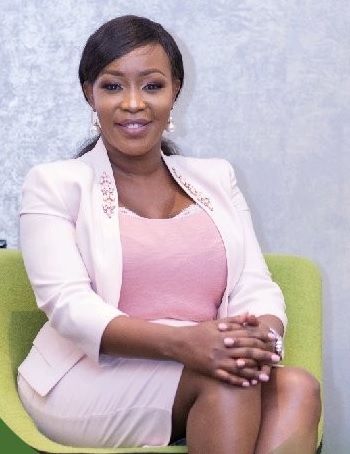With renewable energy forecast to play a growing role in Africa’s energy future, IFC has launched a new podcast series to promote the role of women in the sector as senior executive, engineers and thought leaders.

In the She Powers Africa podcast, host Terryanne Chebet, an entrepreneur and media specialist, speaks with leading women in Africa’s renewable energy space to light the path for the next generation of African women leaders into the dynamic renewable energy sector.
The first three episodes feature Jennifer Boca, Head of Environmental, Social and Governance at Lekela Power; Olaedo Osoka, CEO of Daystar Power in West Africa; and Carol Koech, the Country President for Schneider East Africa.
“This engaging podcast is ideal for women interested in working in the renewable energy sector and also for anyone concerned about climate change in Africa and curious about the practical solutions. Renewable energy is Africa’s energy future—and ensuring more women are part of that future will enhance the sector's success,” said Anne Kabugi, IFC’s Regional Gender Lead for Africa.
By 2040, renewable energy could account for more than 60% of new electricity generation in sub-Saharan Africa, excluding South Africa, according to the International Energy Agency’s (IEA’s) Africa Energy Outlook 2019 report.
But, despite the sector’s importance, women lag men in leadership and technical jobs in the renewable energy sector and represent just one third of the renewable energy workforce in Africa, according to research conducted by IFC on women’s participation in Africa’s renewable energy sector.
The podcast, which can be found here and major podcast platforms such as Apple Podcasts and Spotify, is produced by IFC’s Energy2Equal programme and its Women in Renewable Energy in Africa network (W-REA), which both aim to enhance women’s participation in the renewable energy sector.
About IFC
IFC, a member of the World Bank Group, is the largest global development institution focused on the private sector in emerging markets. It works in more than 100 countries, using its capital, expertise, and influence to create markets and opportunities in developing countries. In fiscal year 2022, IFC committed a record US$32,8 billion to private companies and financial institutions in developing countries, leveraging the power of the private sector to end extreme poverty and boost shared prosperity as economies grapple with the impacts of global compounding crises.
Contact Devon Maylie, IFC, dmaylie@ifc.org , www.ifc.org















